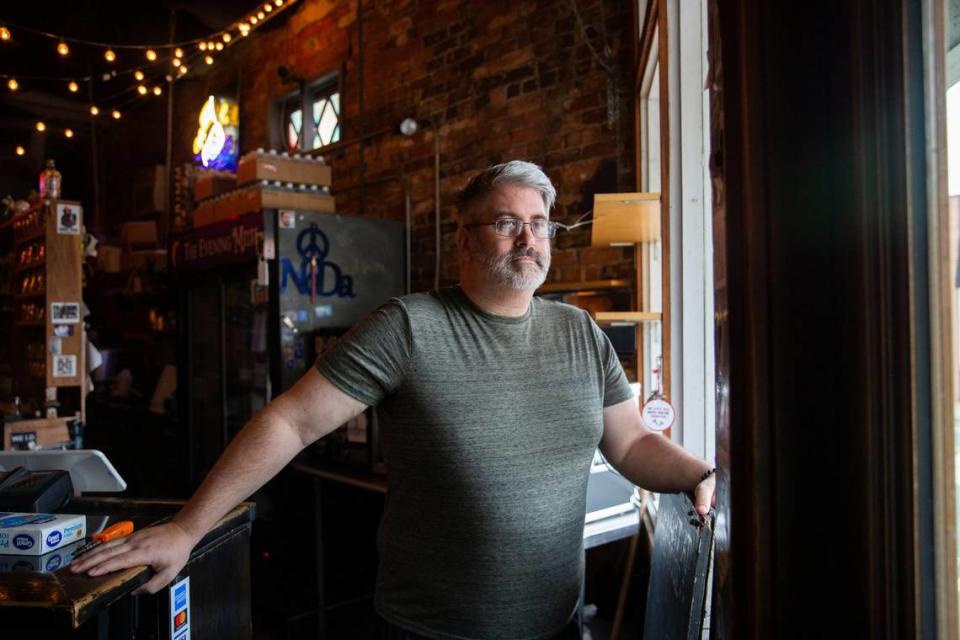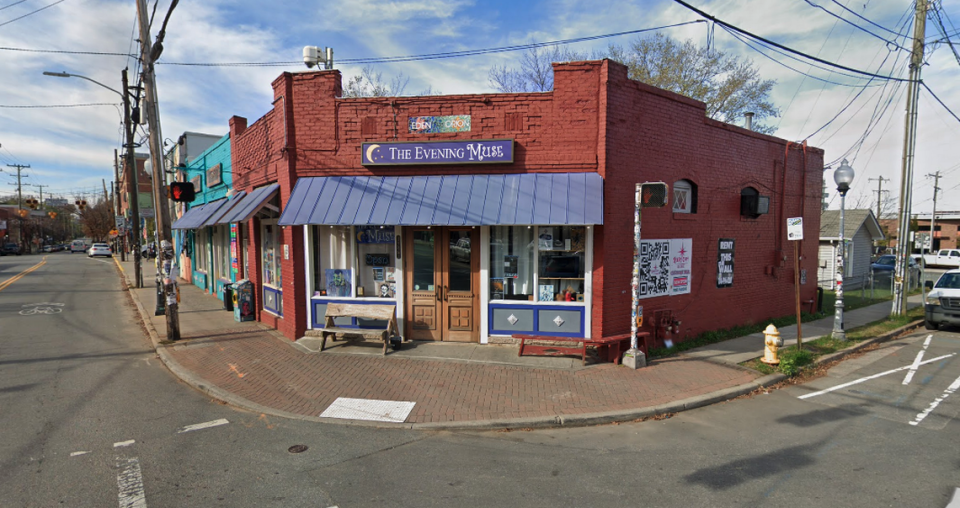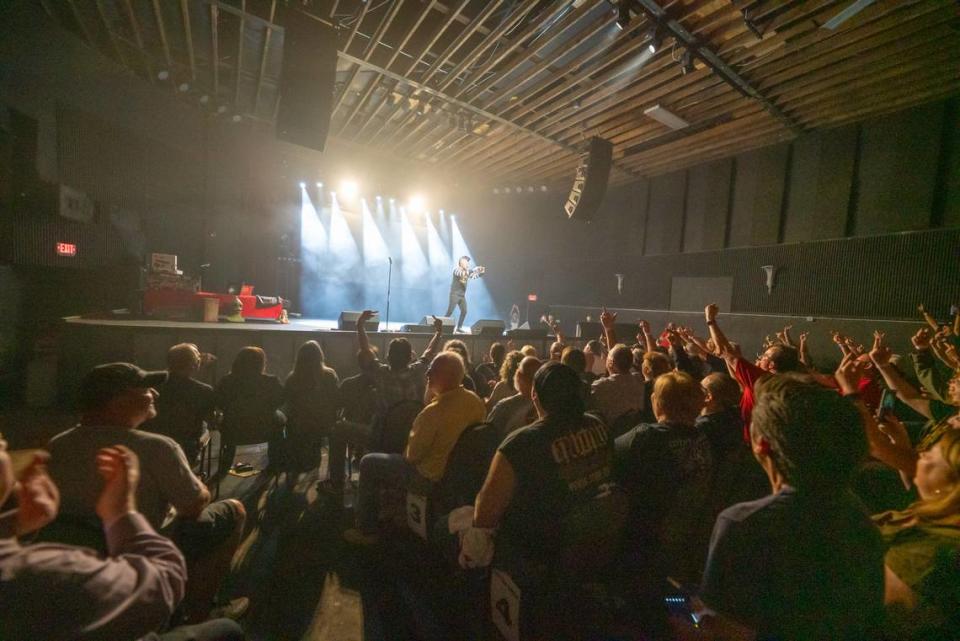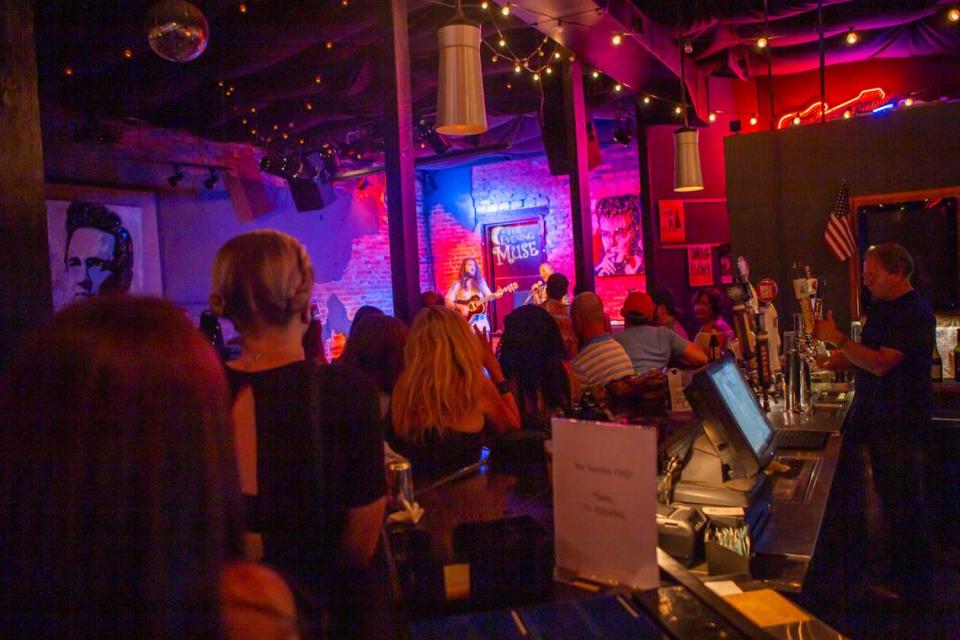‘The customer is always right’ is ‘outdated’: Are Charlotte music crowds noisier than ever?
Concertgoers across the nation and in Charlotte have become increasingly disruptive due to a mix of changing social norms, alcohol consumption and varying dynamics between small and large venues — and those watching and managing the shows are speaking out.
Maintaining etiquette at live events has become increasingly challenging in the past few years. Concertgoers have become rowdier, often yelling at artists, blocking views and publicly breaking up with significant others, among other behaviors.
While noise and singing along have long been part of the concert experience, the difference now is that many people pay for tickets yet disregard the actual event. This issue isn’t unique to Charlotte; it’s happening nationwide. So why is this occurring? How did we reach this point?
The topic has been a hot one recently, with upset concertgoers speaking out to share their frustrations. Concertgoers have also expressed their concerns on Reddit and other social media, creating threads of opinions that all point to the issue and prompting venue owners to take action.
On June 8, Neighborhood Theatre in NoDa posted a statement with a graphic titled “Don’t Talk Over Music” on both Facebook and Instagram. The post stated that the team had “read enough messages and posts” and felt addressing the noise at a recent Watchhouse concert was necessary. After a CharlotteFive story was published about the noise-related incidents, readers spoke up via Instagram to share even more complaints about local venues.
Addressing the noise complaint issue
Gregg McCraw, owner of MaxxMusic, the entertainment company that brings artists to the Neighborhood Theatre, told CharlotteFive that his team has made efforts to address noise at quieter shows since the complaints after the Watchhouse concert. Team members have put up signs in the venue and have not encountered the issue since then.
“We are tackling the quieter shows as we can, appropriately,” McCraw said. “We have put signs up in the venue, and since the Watchhouse show, we haven’t had many quieter shows — and we haven’t encountered the issue.”
“We are constantly trying to improve our experience for people. We want to be welcoming to every audience and every music genre,” McCraw said.
Another venue owner, Joe Kuhlmann of The Evening Muse, told CharlotteFive: “Live music works when the audience is in tune and engaged in the act.”

Is noise better or worse at small concert venues?
Small venues such as The Evening Muse in NoDa, which can only hold 120 concertgoers, are more intimate and allow more room to notice when someone is loud when “a show is quiet,” Kuhlmann said.
The Evening Muse used to post signs asking patrons to be quiet during a show, but Kuhlmann said they didn’t help much and found direct conversations were better.
“We want people to feel welcome, so we let them know when their voice is carrying,” Kuhlmann said. “The problem is that people have a bit of privilege. They think that because they paid, the venue becomes their living room for the night.”

In contrast, medium-sized venues such as Neighborhood Theatre can hold up to 956 concertgoers at a time, creating a less intimate scene.
Maria Sampogna moved to Charlotte a year ago from Austin, Texas. “I’m still flabbergasted by the audience behavior at every show I’ve been to here. We went to so many shows in Austin but it’s becoming insufferable to try to go to any in this city. Ugh,” she wrote on CharlotteFive’s Instagram post about the topic.
We followed up with Sampogna to hear more. “Neighborhood Theatre has the loudest crowds,” she said. “In Austin, most shows are at venues similar to the Neighborhood Theatre. I think crowds (at Neighborhood) don’t feel like they are at a concert, so they don’t have to behave like they are,” Sampogna said.
The venue’s side and infrastructure might have something to do with the noise issue, and also its limited staffing. “There are a few people at the door and then there are the bartenders, so no one is in the crowd to deter that kind of behavior,” she added.

Gary McCoy, a Charlottean who travels to different music venues, has experienced the same issue in Chicago, Boston and NYC.
“Sometimes it feels there are so many corporate complimentary tickets that people are gifted them and they just go to a show and talk about the office or something all night,” McCoy said.
Alcohol’s role in disruptive concerts
Booze and music venues go hand in hand, but one thing that can make concert patrons harder to deal with is when they arrive at the venue intoxicated, Kuhlmann said.
“When alcohol is involved, however, people sometimes get downright rude with you,” Kuhlmann said.
In 2023, Business Insider reported that alcohol sales have been crucial for keeping clubs financially afloat, with profit margins on drinks reaching up to 80% according to point-of-sale operator Toast.
Kuhlmann told CharlotteFive that having a bar at Charlotte venues is indeed “how you make your revenue.”
“Selling alcohol is a part of the business, it is essential. Most music venues aren’t going to have too many seats at the bar. It’s a service bar, not a bar to hang out at,” Kuhlmann said.
McCraw added, “Alcohol is a music venue’s popcorn, just like a movie theater. That is how they make their money.”

Pricey performances
Over the past year, record-breaking ticket sales with higher price tags have led some to believe that the expense has changed consumers’ behavior, too.
The Hollywood Reporter reported earlier this year that entertainment companies are shifting rising costs onto consumers, resulting in a “14 percent increase in average ticket prices compared to pre-COVID levels.”
Kuhlmann said concert patrons being loud and disruptive frankly boils down to the idea that they simply “want more than what they paid for.”
“At the store, gas station, or even a music venue, there is a systemic feeling of wanting more, and that is creating a subconscious outlook on life,” Kuhlmann said.
Is ‘the customer is always right’ an outdated way of thinking?
Societal norms have changed, as well, feeding into a change in patrons’ behavior.
“’The customer is always right’ isn’t always the case. It’s an outdated way of thinking; therefore, when you feed into that, people have an empowered view of things,” Kuhlmann said.
He told CharlotteFive there isn’t really a solution to how people act at these venues because the experience is “incumbent upon the guest.”
“When you realize that the guest hasn’t fully arrived, it’s important to remind people that their humanity is a part of the value of going to a show,” Kuhlmann said.
You can only gauge concertgoers’ reactions when they’re being rude, loud, or disruptive — whether that is directly related to being intoxicated or simply because they paid to be there.
“We can’t assume how someone’s day is, because, at the end of the day, music venues that care about the guests’ experience are doing the best they can,” Kuhlmann added.


